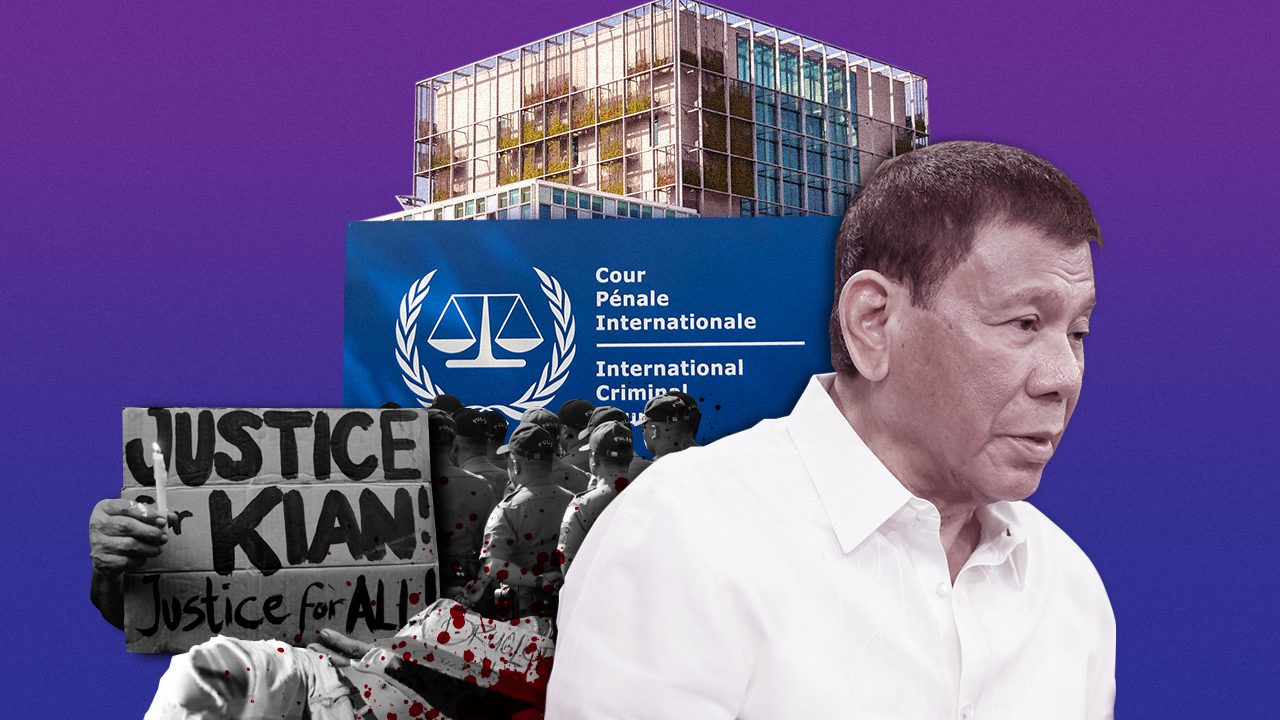SUMMARY
This is AI generated summarization, which may have errors. For context, always refer to the full article.

A little over two weeks after the end of consultations with individuals and organizations familiar with the situation in the Philippines, the International Criminal Court’s (ICC) Registry found that victims “overwhelmingly support an investigation” into alleged crimes committed under President Rodrigo Duterte’s brutal drug war.
A 30-page public redacted report dated August 27 concluded that the Victims Participation and Reparations Section (VPRS) of the ICC’s Registry has found that victims want a probe by the ICC Prosecutor “into all crimes against humanity allegedly committed in the context of the so called WoD [War on Drugs] in the Philippines between 1 November 2011 and 17 March 2019.”
A total of 204 representations were transmitted by the VPRS to the Pre-Trial Chamber that has to decide whether it will authorize the investigation sought by the ICC’s Office of the Prosecutor (OTP) into these alleged crimes.
This victim representation process conducted by the Registry’s VPRS from June 15, 2021 to August 13, 2021 was the fifth such consultation exercise. The Registry is a “neutral organ” of the ICC that “provides services to all other organs so the ICC can function and conduct fair and effective public proceedings.”
The report said 94% of the victims consulted want the ICC prosecutor to investigate crimes committed in the name of the war on drugs. Some of them said they want perpetrators identified and brought to justice, they want an end to impunity, and want to prevent future crimes.
“There is a total impunity here, the police and their cohorts just killed and the President gave the orders to kill in his public announcement that’s why the killing continues and this has to be stopped. This is so inhuman and cruel,” the report quoted one of the victims as saying.
Tens of thousands have been killed in Duterte’s war against drugs, with human rights groups saying that about 27,000 have been killed. The police have pegged their numbers at only about 7,000.
Cristina Palabay, secretary general of human rights group Karapatan, said the VPRS report “reaffirms that there is overwhelming need and clamor for justice and accountability, considering the active participation of victims and kin in this process in spite of the climate of impunity in the Philippines. With this report, we hope that the Pre-Trial Chamber will issue its decision to conduct investigations soon.”
The VPRS also said that the following potential crimes against humanity allegedly committed in the Philippines were: “murder; attempted murder; imprisonment or other severe deprivation of liberty; rape and other forms of sexual violence; enforced disappearance of persons; torture; and other inhumane acts.”
These crimes were allegedly committed by the police and “unidentified men usually wearing civilian clothes, bonnets, masks and who, in a number of cases, rode in tandem when committing the alleged crimes.”
Both direct and indirect victims also reported various types of harm – physical, psychological, material, and social – as well as the substantial impairment of fundamental rights that included the loss of education opportunities and deprivation of liberty.
One quote pertaining to the scope of the probe and the alleged perpetrators said: “Duterte must be prosecuted for the many people that he killed, an investigation is important to show the families of those who died that justice can be served. [ … ] Investigate the police, and the higher ups who ordered them to do it. This was the order of the President of the Philippines.”
Victims expressed concern about the effectiveness of the Philippine judicial system and government’s “ability and willingness to investigate WoD-related crimes.” One quote included in the report said: “Legal processes within the country are manipulated/pressured by the state to the disadvantage of the victims’ families.”
They also requested for expeditious proceedings and reparations for those who suffered under the Duterte administration’s war on drugs. They likewise relayed their trauma as a result of the violent campaign and said they also suffered from the social stigma of being accused of using illegal drugs.
The war on drugs, according to those who were consulted, is an alleged war against “the poor and the innocent” and had tremendous impact on children too. “A lot of families were broken and suffered because of the death of their relatives, often their parents. The children left behind struggle so much,” said a victim quoted in the report.
The government’s brutal campaign has had both a cultural and social impact on Filipinos. It is “redefining and superseding the traditional values and moral fiber of Philippine society to the extent that it legitimizes the use of violence at all cost in such a way that people become blind to its abuse…” the report quoted one representation as saying.
Of the 204 transmitted representations, 200 were assessed as “collective,” while four were individual. These representations were introduced on behalf of about 1,530 individual victims and 1,050 families. The VPRS said that in designing its representation process, it was guided by the “security first” principle and followed both an open and targeted approach.
The VPRS was careful to inform interlocutors that staff members are not part of the OTP and that the Registry is neutral in the proceedings. It is the chamber – and no one else – that can authorize any investigation by the ICC Prosecutor. Furthermore, the VPRS also said that victim representations are not evidence, will be shared only with the judges, and will be kept confidential.
In all meetings, the VPRS also stressed that the “ICC process can take a long time and may not always result in suspects being identified, tried, or found guilty.” – Rappler.com
Add a comment
How does this make you feel?





![[OPINION] Rodrigo Duterte and his ‘unconditional love’ for China](https://www.rappler.com/tachyon/2024/04/rodrigo-duterte-xi-jinping-august-2019.jpeg?resize=257%2C257&crop=91px%2C0px%2C900px%2C900px)



![[The Slingshot] Lito Patay’s 4 hours and 38 minutes of infamy](https://www.rappler.com/tachyon/2024/07/Lito-Patay-4-hours-infamy-July-19-2024.jpg?resize=257%2C257&crop=233px%2C0px%2C720px%2C720px)



There are no comments yet. Add your comment to start the conversation.